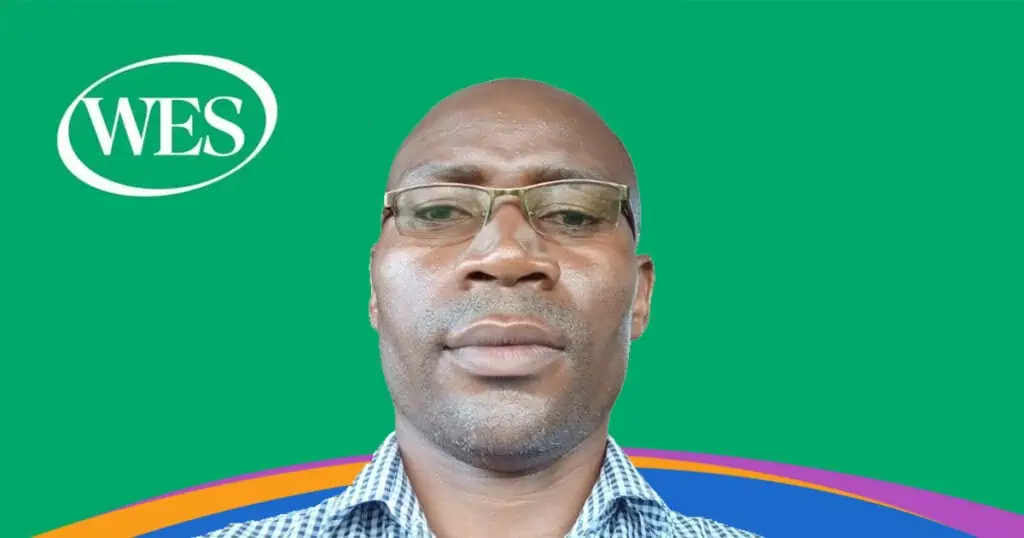Why Evaluate Your International Academic Credentials?
In North America, challenges to the recognition of international academic credentials are numerous; however, with some basic research and planning, you can make the process advantageous for yourself and accomplish your career goals.
As an international student or immigrant to Canada and the U.S., you have to do your part to ensure employers, colleges, universities, and professional licensing bodies/boards are giving appropriate recognition to your international academic credentials. One way of gaining appropriate recognition is using external evaluation services like World Education Services (WES).
External evaluation services play a significant role in facilitating the recognition; however, ultimately it is the recognition by employers, professional licensing bodies/boards, and academic institutions that formalizes the value of international credentials.
Generally, you may need to authenticate and evaluate your academic credentials for four main purposes:
- Employment
- Higher Education, Continuing Education, and Transfer Credits
- Licensing with Professional Licensing Bodies/Boards
- Immigration, Work Permit, or H-1B Visas
Employment
Increasingly, employers are committing themselves to diversify their workforce and tap into the global talent pool; this is a win-win for businesses and job seekers alike. On the other hand, numerous studies have shown that human resources departments have little or no training in weighing the value of international academic credentials. Traditionally, this training is not part of HR training; however, the international mobility of labour is changing this.
One simple rule is this: As a job seeker, when you are applying for a job and the job posting has an education requirement, it is highly recommended that you get an evaluation report and indicate your Canadian or the U.S. equivalency in your resume. An example of a phrase in your résumé is: “Equivalent to a Bachelor’s Degree in Biology from a U.S. (or Canadian) university, as determined by World Education Services (WES).” You may want to re-emphasize your Canadian or U.S. equivalency in your cover letter, as well. Furthermore, you might consider submitting a copy of the evaluation report with your cover letter and résumé.
It is highly recommended that you share your academic equivalent information as early as possible in the application process, and do not wait until the job interview. Employment and career coaches advise that getting the job interview is more than 50 percent of the whole process of securing an employment. With an evaluation report, you increase your chances for employers to screen you in rather than out.
Nowadays, there is a way of knowing your Canadian or the U.S. academic equivalency before you pay the fee for official evaluation report. World Education Services (WES) has developed the Degree Equivalency Tool for individuals and institutions to preview the Canadian and the U.S. equivalency for degree-level credentials for over 160 countries.
Keep in mind that these equivalency results are unofficial, results are not based on authenticated documents, and normally institutions require an official result from external evaluation services.
In addition, research has shown that sometimes immigrants start with a lower salary level than their counterparts who have completed their formal education in North America. A formal evaluation report can provide you with an advantage in negotiating a better starting salary.
A formal evaluation report can be useful for promotion opportunities that may become available within the company where you are working. For promotion opportunities, employers are bound to provide an equal opportunity for all their qualified staff. With equivalency report in hand, you will be in an advantageous position to compete for promotions.
Higher Education, Continuing Education, and Transfer Credits
Upon arrival to Canada, statistics show that a very large number of immigrants pursue further education. For instance, an immigrant with a bachelor-level education from his or her home country will pursue a master’s level education upon arrival in Canada. Or, they might consider getting another bachelor’s degree with promising employment opportunities in a specific sector of the economy.
It is almost certain that the academic institution in the U.S. or Canada to which you are applying will require an authentication and evaluation report of your past academic credentials. Some North American institutions and their staff conduct the evaluation process at their own admissions office; others refer students to external evaluation services.
Some institutions may require a detailed report, or what is known as a course-by-course evaluation report. Whatever the case, most institutions find a formal evaluation report helpful in making an admissions decision.
To pursue higher education, you must demonstrate that you have the prerequisites to enter the program, have the necessary grade point average (GPA), or have taken the equivalent courses elsewhere. This is determined through a detailed formal evaluation report.
When an academic institution grants you admission based on your previous international academic training, it is considered recognition. One of the most tangible ways to receive recognition is when you are able to negotiate “transfer credits” or “advanced standing,” which can help you save tuition money and time by not having to repeat similar courses that you have already taken outside of North America. A Course-by-Course report includes converted credit hours for your courses as well as a GPA.
Before applying to any institutions, you may want to use the free iGPA Calculator from WES to know if you are meeting the targeted institution’s GPA requirement.
Licensing with Professional Licensing Bodies/Boards
There are thousands of professional licensing bodies and boards in North America. Normally, one of their requirements is an authentication and evaluation of international academic documents.
Again: The best way to proceed is to contact the appropriate licensing board directly before applying to external evaluation services.
Internationally trained engineers and accountants can often secure related employment with appropriate compensation level without a license. You can negotiate and secure these positions by presenting evaluation reports. However, in other regulated professions—like the healthcare sector—it is unlikely that you would be able to secure an employment offer working at the clinical level without a license.
Some licensing boards conduct authentication and evaluation in-house, and others outsource this service to external evaluation services. If your intention is to obtain a license in your occupation, consult the licensing board first. Ask what evaluations they accept, and which providers they prefer. Some research or a simple phone call will save you considerable time and money.
Immigration, Work Permit, or H-1B Visas
For skilled or economic class immigrants to Canada, there is a formal requirement by Immigration, Refugees, and Citizenship Canada (IRCC) for candidates to submit their Canadian academic equivalency or Educational Credential Assessment (ECA) with their immigration applications. Under the new immigration policies, Express Entry, educational attainments have a
higher value. The primary applicants, including their spouses, can receive points toward their total Comprehensive Ranking System (CSR).
For the U.S.’s H-1B visa, U.S. Citizenship and Immigration Services require a bachelor’s degree or higher degree or its equivalent evaluation report.
As a potential international student or immigrant to North America, it is very advantageous to do some basic research and learn who requires evaluation reports, types of evaluation reports, and from which external evaluation service.
As a general guideline, go with a recognized, credible evaluation service. Find out if employers, institutions, licensing boards, and immigration authorities already accept reports from this organization. It would be beneficial for you to purchase an evaluation report that can be used for all four purposes or at least for more than one purpose.
Top 5 Tips for Selecting an External Evaluation Service
When selecting a credential evaluation service, keep the following tips in mind:
- Call the academic institution or licensing board to learn about their international academic credential authentication and evaluation requirements.
- Obtain an evaluation report that is useful for more than one purpose.
- Find out if the evaluation service charges a separate fee for each academic credential. (Otherwise, the fee is per person for all of your credentials.)
- Find out if the evaluation service shares the authenticated academic documents with institutions and licensing boards. This will potentially save you time and money. It means you won’t have to send yet another set of official transcripts to North America.
Get a preview of your U.S. and Canadian academic equivalency and GPA before applying to external evaluation services.





